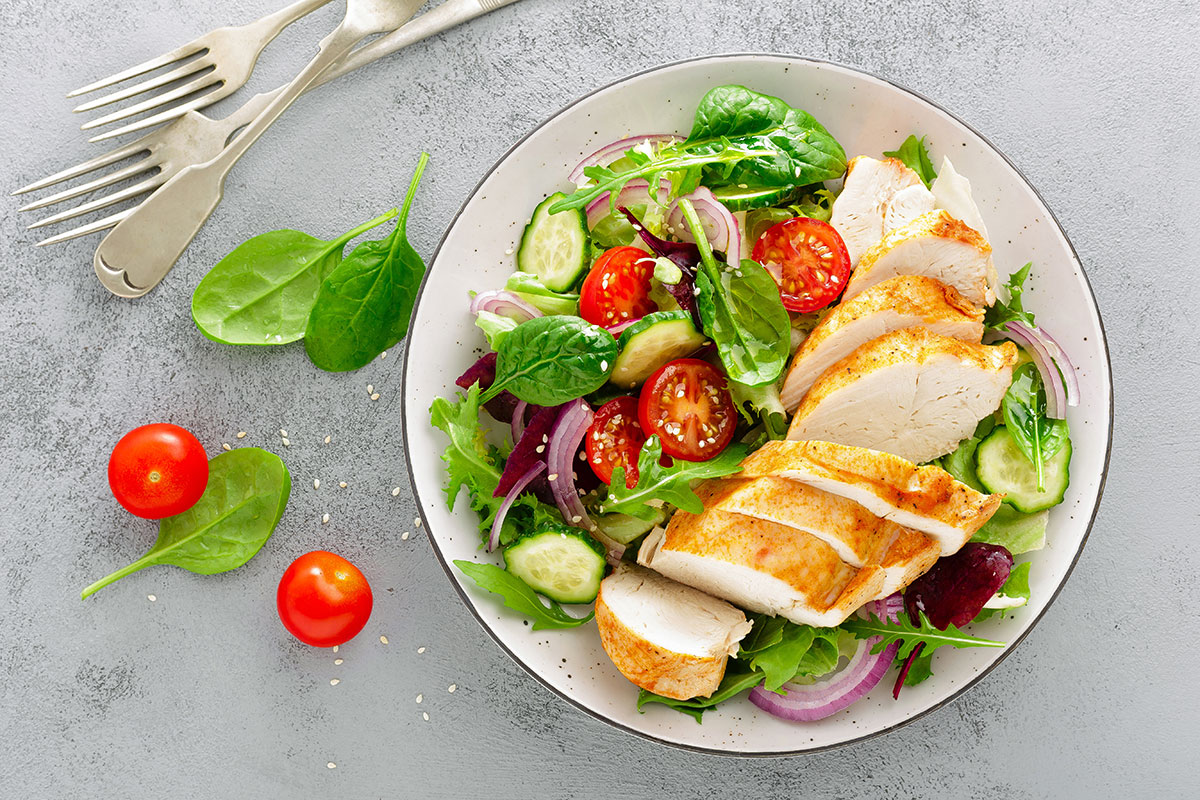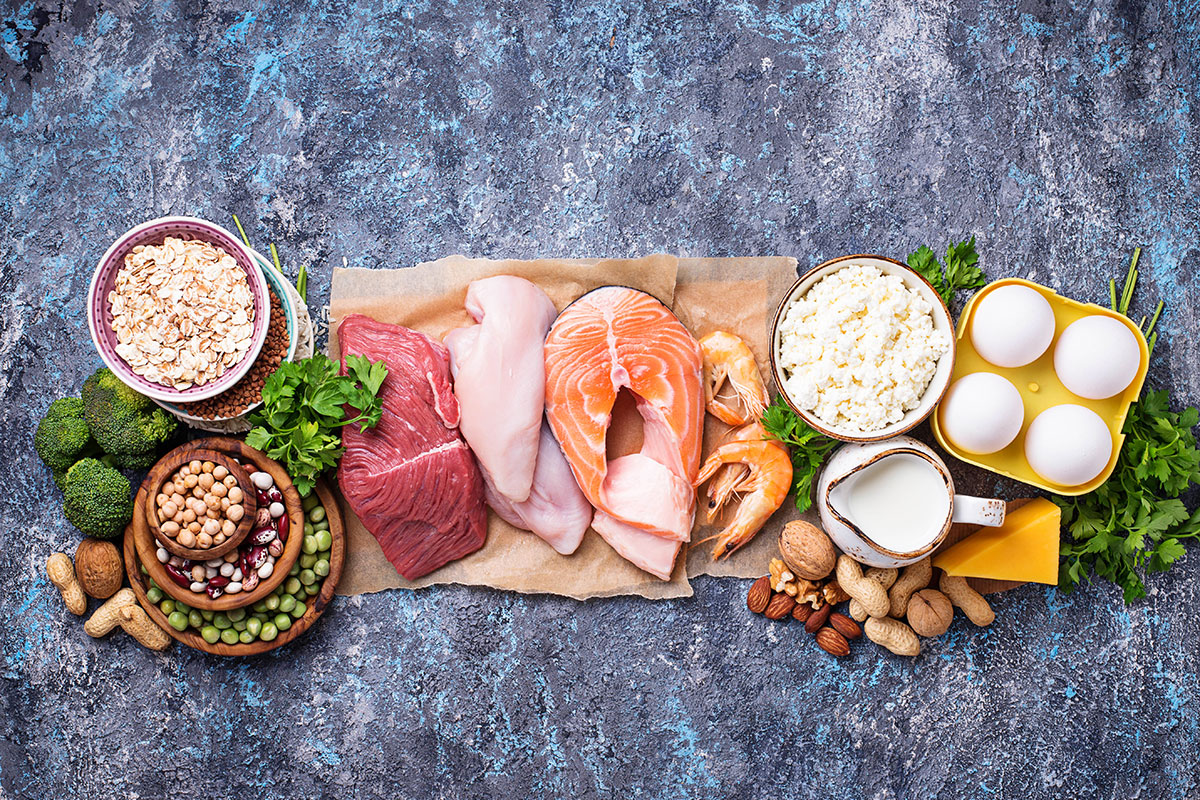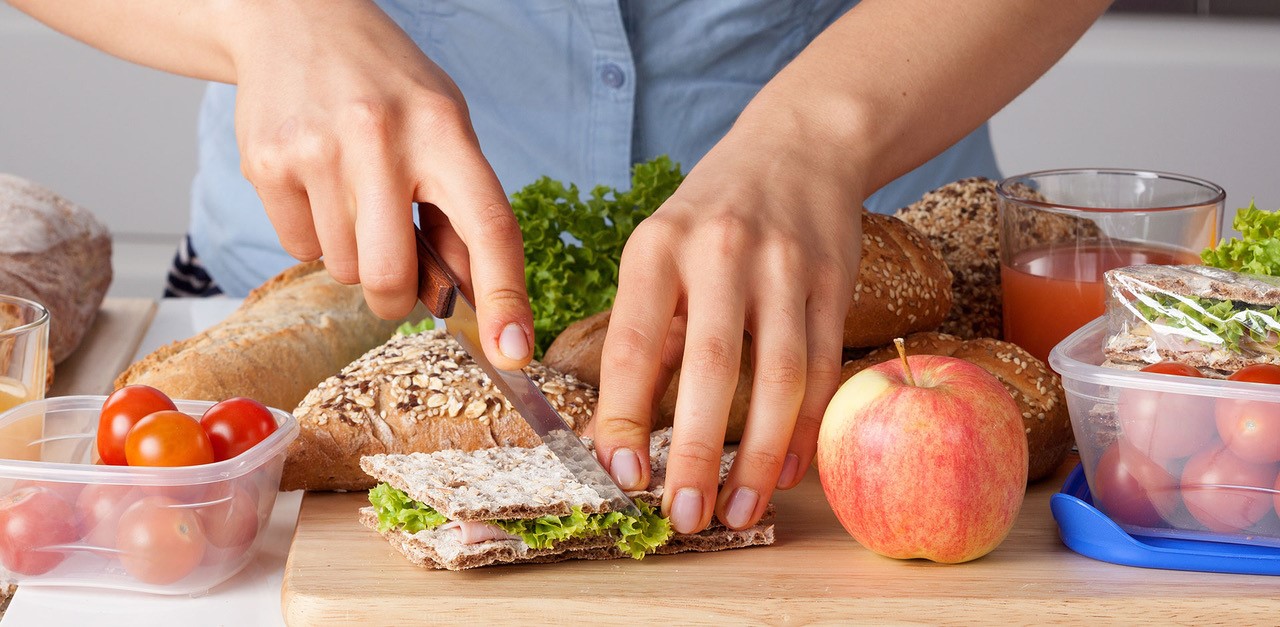A healthy diet is often associated with high financial expenditure. Relying on fancy, expensive products often doesn't encourage you to start changing your diet. The following article answers the question of whether a balanced menu must actually cost a fortune?

More expensive does not mean better
Contrary to appearances, healthy eating does not have to be expensive. There is no need to choose products such as salmon, avocado or exotic fruit and products from a more expensive shelf every day. Many of the healthy assortments such as olive oil, for example, last a long time. In addition, when you give up sweets, processed foods, you'll see how much money you save. Oatmeal or millet flakes consumed for breakfast, compared to chocolate balls, are definitely a better and cheaper choice. Contrary to popular belief, buying healthy food does not have to cost a lot.
Plan your shopping

Planning your meals in advance is an integral part of saving. It is worth going shopping with a prepared product list. In addition to saving you buying things you don't need, your wallet will also thank you for that. Not only will you avoid throwing away uneaten and spoiled products, but also purchases with a prepared list will be faster. Unfortunately, we often have a tendency to waste food by buying unnecessary products for storage. Before going to the supermarket, think about the meals you want to eat in the coming days and be sure to look through the pantries.
Seasonality
Remember that prices of some products change seasonally. It is worth to bet on currently available vegetables and fruits, which in practice will allow you to reduce food expenses. In summer, it is worth using fresh fruit such as strawberries, blueberries, etc. Root vegetables are of good quality in winter. Apples and plums taste best in autumn. If you do not want to waste time peeling and cutting vegetables, you can use frozen food.
Rotate products
You don't have to eat salmon every day. It is worth to rotate consumed products in your diet, not only because of price differences but also nutritional values. You can serve cheaper offal on the menu, such as liver rich in vitamins and minerals.
If you can, do it yourself!

Instead of choosing ready meals such as salads or smoothies, you can prepare them yourself. We tend to think that choosing a finished product will save time. However, keep in mind that by buying ingredients for a salad, you can make several portions of it. Self-preparation of dishes does not have to be time-consuming, if we plan it properly and, above all, we acquire practice, for which practice is needed. If you do not have a lot of time, prepare larger portions for storage. As part of several lunches, you can eat the same for several days. Buying poor quality meats, ready sauces, processed food like pizza or kebab, contrary to appearances, leads to spending more money.
Do not buy ready-made meals
Colorful messages encouraging to buy on ready-to-eat products, such as "just pour water", "for a little hunger", etc. are often perceived by consumers as a simple and quick way to satisfy their hunger. However, very often processed foods are characterized by high energy density and at the same time low nutrition. In the long run, this may translate into micronutrient deficiencies. In addition, we often don't realize that we overpay when choosing ready-to-eat products. It's worth getting into the habit of reading labels to know what we pay for. Reviewing the composition of the product we will see what really, often contrary to misleading assurances of manufacturers, is inside. If you want to save time, just choose natural products without composition!
So what products should you choose?

Carbohydrates: groats, rice, whole grains, fruits, vegetables.
Protein: meat, fish, eggs, seafood, dairy products, legumes.
Fats: olive oil, linseed oil, evening primrose oil, borage oil, avocado, nuts, seeds.
The shorter the list of ingredients, the better. The more nutritious the diet, the more productive we are, we work more efficiently and we have more energy.
Summary
Rational nutrition does not have to be based on eating products, such as chia seeds or quinoa, which do not attract their price. Thanks to proper menu planning, a healthy diet will not be expensive, and will even help you save money and maintain vitality.





